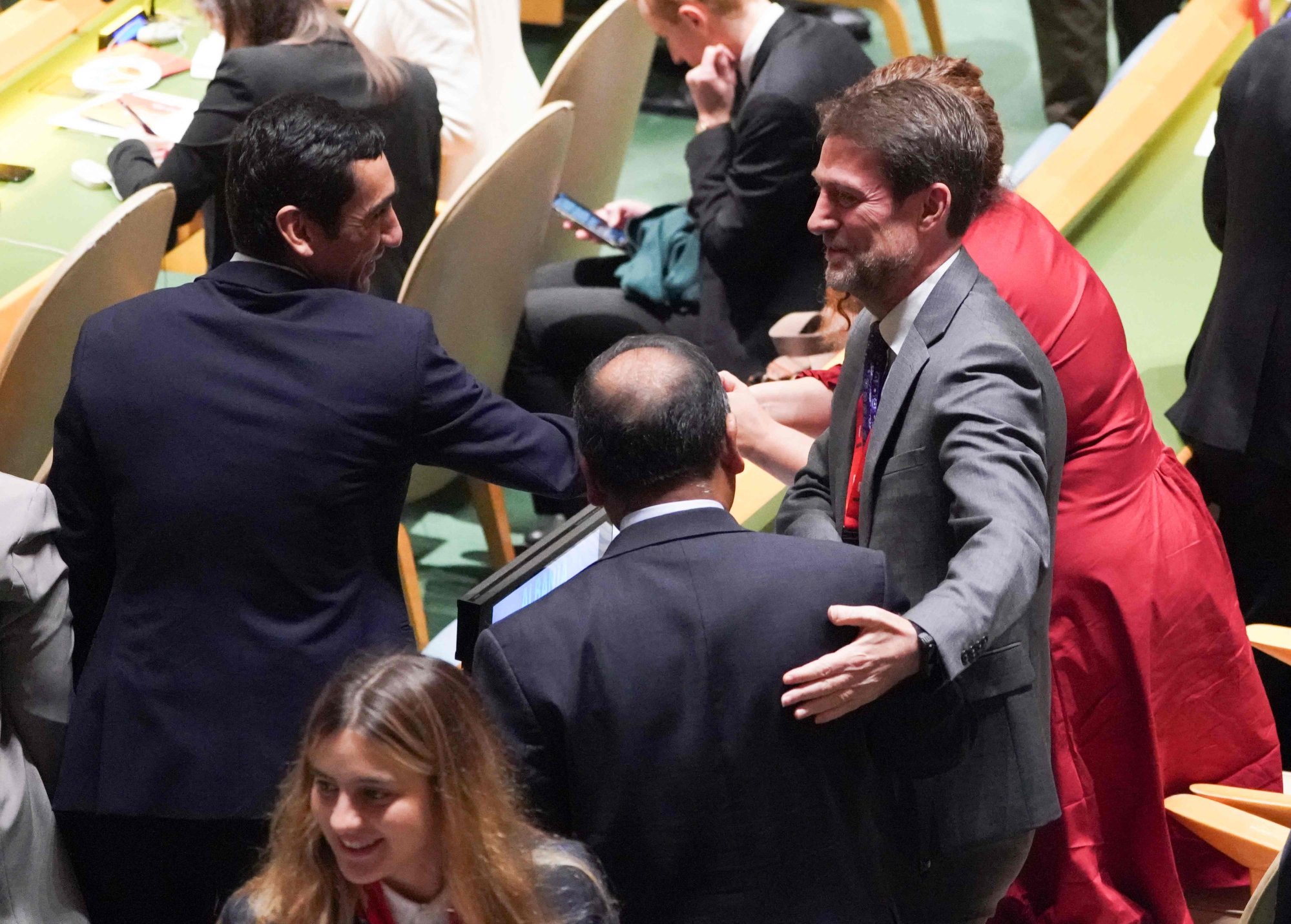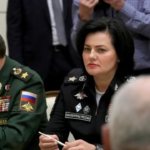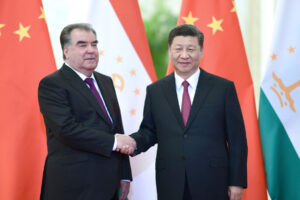The United Nations General Assembly elected China to the Human Rights Council in an uncontested vote on Tuesday and denied Russia a seat in the wake of its 2022 invasion of Ukraine.
The election to the 47-member council had been seen as a showdown between democracies that favour individual rights and authoritarian states that have redefined those rights to embody state-led governance and social order.
“China came in last place in the Asia group. That suggests that if there had been competition in the Asian slate, China would have lost,” said Louis Charbonneau, UN director at civic group Human Rights Watch. “UN member states sent a strong signal to Russia’s leadership that a government responsible for countless war crimes and crimes against humanity doesn’t belong on the Human Rights Council.”
China secured its sixth term on the Geneva-based council with 154 votes out of 192 cast, while Russia lost in the contested Eastern Europe slate with 83 votes – the lowest of any candidate – after being expelled last year.
Moscow’s candidacy appeared to gain momentum in recent weeks before Western and other opponents rallied behind rival Albania, analysts said. Deputy US ambassador Robert Wood told the Security Council on Monday that Moscow’s potential re-election to the Human Rights Council would be “an ugly stain” on the UN.
Critics have long decried frequently stage-managed council and broader UN elections that allow regional and economic blocs to make back room deals, undercutting genuine debate and competition.
China’s UN mission touted the victory. “This fully demonstrates the international community’s full recognition of China’s achievements in human rights,” it said in a statement, condemning the West’s “wrong practices of politicising human rights issues and double standards”.
Candidates vie for staggered three-year terms in a secret ballot. This year, candidates China, Japan, Indonesia and Kuwait were all elected in the four-seat uncontested Asia grouping, while Russia lost out to Albania and Bulgaria for two Eastern European seats.
Faced with an all but certain outcome, human rights groups and critics in the election had urged the 193 UN member states to leave their China ballots blank to protest and exert pressure on Beijing.
But they also noted that Western nations frequently follow the same playbook by orchestrating their own unchallenged candidacies, including France and the Netherlands in this year’s European slate.
“I’d love to see competitive slates, and the Western group does a poor job of setting an example,” said Rana Siu Inboden, a senior international security fellow at the University of Texas at Austin and former US State Department human rights official. “That sort of thing still matters to China.”
“China has historically been so sensitive to face, not only at a social level but internationally,” added Inboden, who served in the US consulate in Shanghai. “Although it doesn’t care much about Western countries, it still does care about the Global South.”

The “vote blank” campaign promoted by civic group Human Rights Watch and others appeared to have some limited impact, with China securing 17 per cent fewer votes than Indonesia, the most popular candidate in the Asian slate or any slate with 186 votes.
Washington is the UN’s largest donor, and Republican members of Congress, which must pass US funding, have criticised a system that has seen China, Russia, Libya, Ethiopia, Sudan and other alleged serious human rights violators elected.
The sizeable presence of alleged violators on the council has fuelled a debate in Washington between those who believe the UN’s premier human rights body is biased and a waste of time – former president Donald Trump’s pulled the US out in 2018 – and those who believe it is better to have a seat at the table, no matter how flawed it is, to bring about change. President Joe Biden’s administration moved to rejoin in 2022.
Analysts said China has done an increasingly effective job securing its interests on the council, and the UN more broadly. This is the result of posting more adroit diplomats to Geneva, toning down its “wolf warrior” rhetoric and mounting a charm offensive with African and Persian Gulf allies in opposition to alleged “Western imperialism”.
In October, Beijing won a diplomatic victory when it narrowly defeated a motion to debate its record on Xinjiang, where up to 1 million ethnic Uygurs have reportedly been detained, days after the council released a highly critical report.
“There’s no question they’ve been on a course of a much more assertive stance at the UN and other institutions,” said Ted Piccone, a senior fellow at the Brookings Institution. “They’re gaining some ground.”
But Piccone, who served at the US National Security Council, State Department and Pentagon from 2000 to 2008, said it was a mixed picture. Even as Beijing gains more economic and military leverage, it is experiencing more resistance.
Europe has embarked on a China “de-risking” strategy – wary of being too dependent after its energy markets were disrupted after Russia’s invasion – even as Latin America makes Chinese investments more conditional and Asian nations grow increasingly wary of Beijing’s expansive territorial claims.
“Africa is more in China’s corner, but even there, there are questions about how aggressive China is,” said Piccone.
Source : TheStar
















